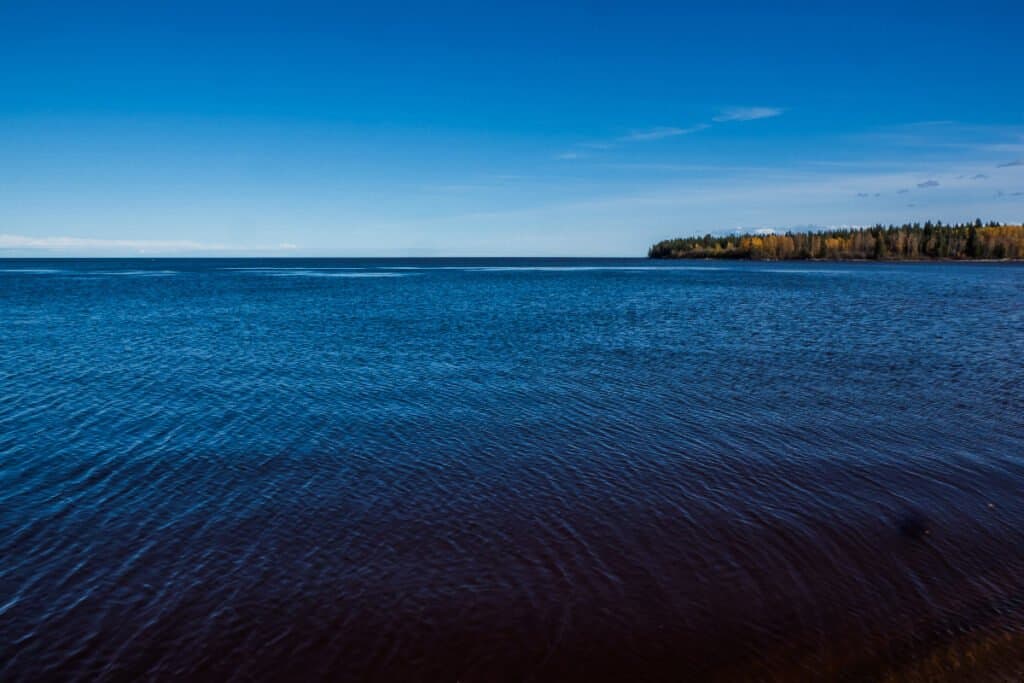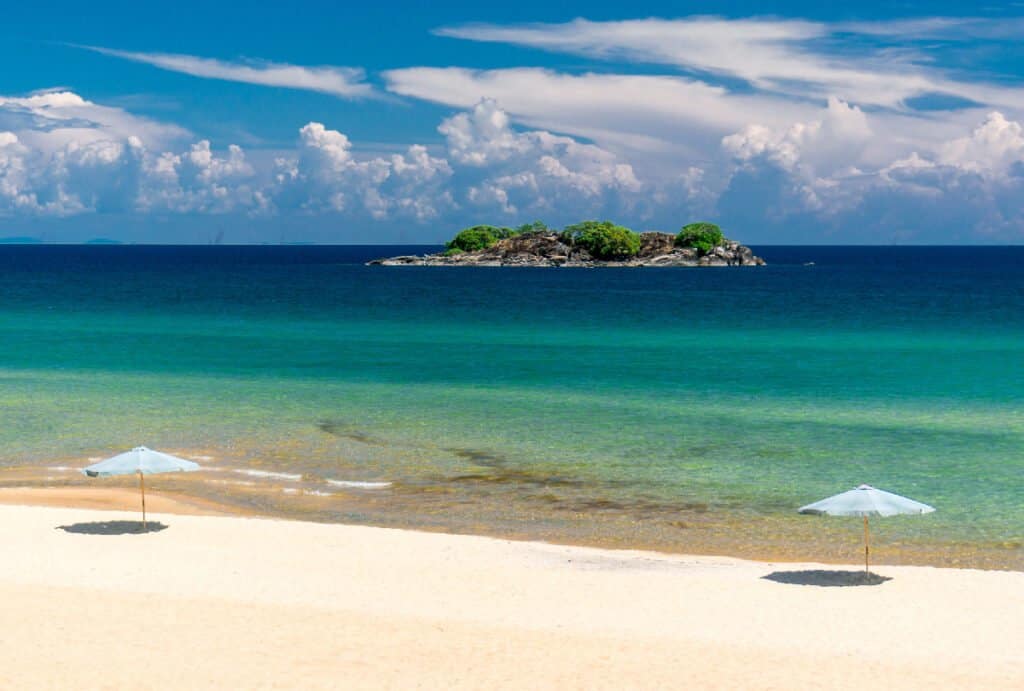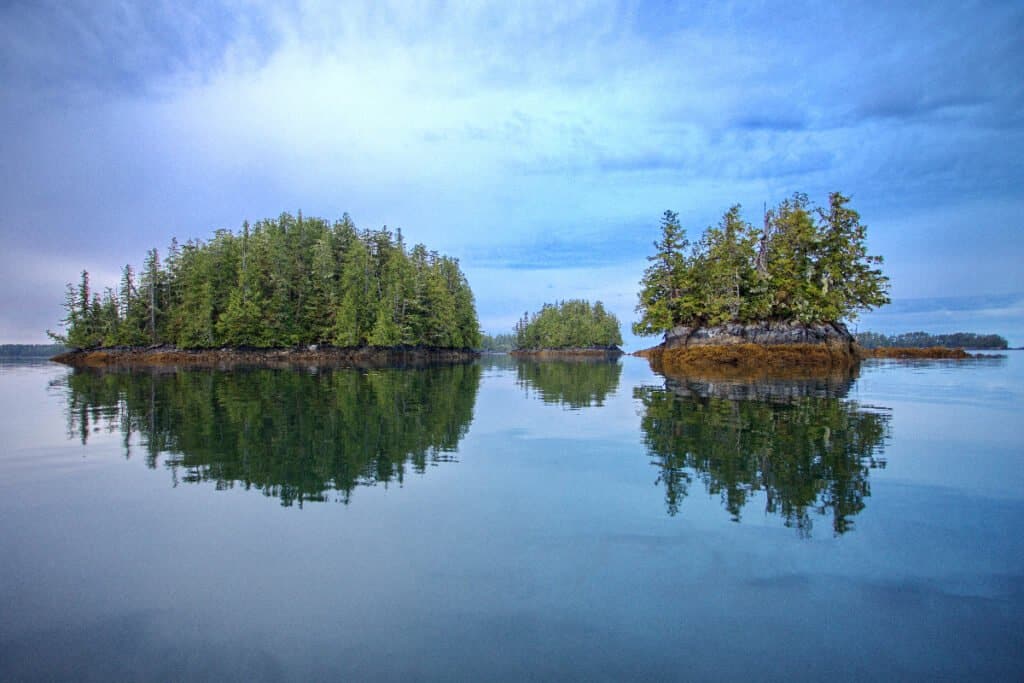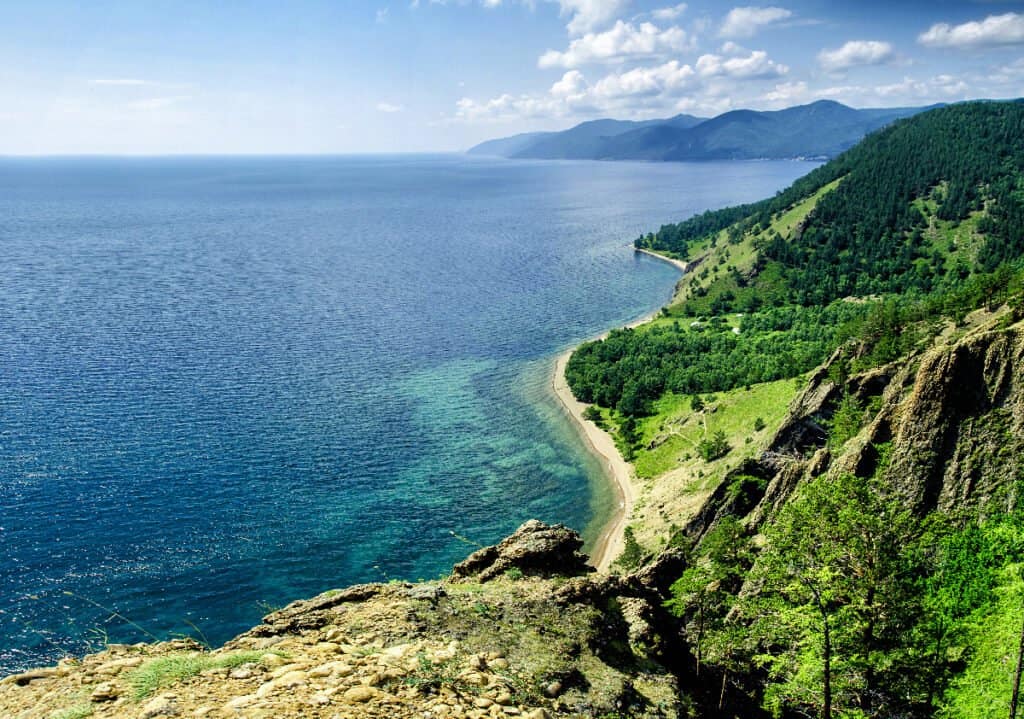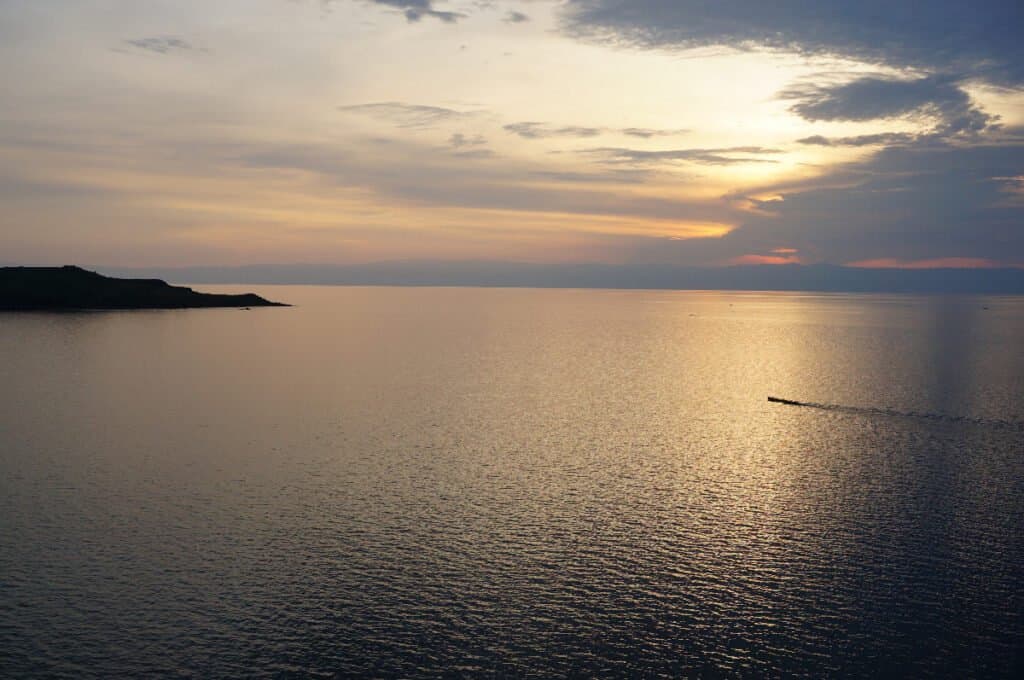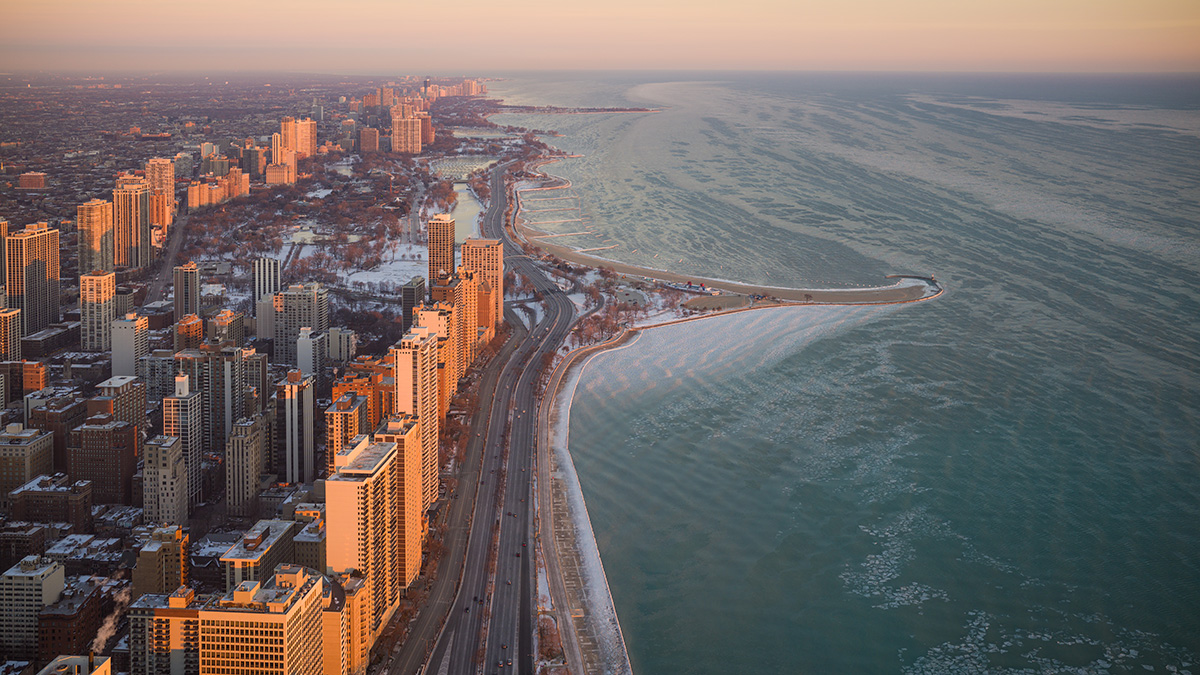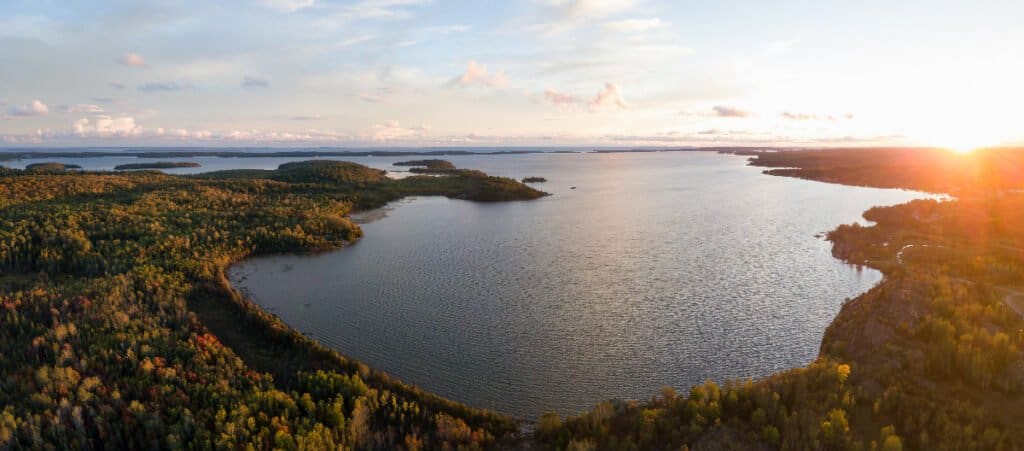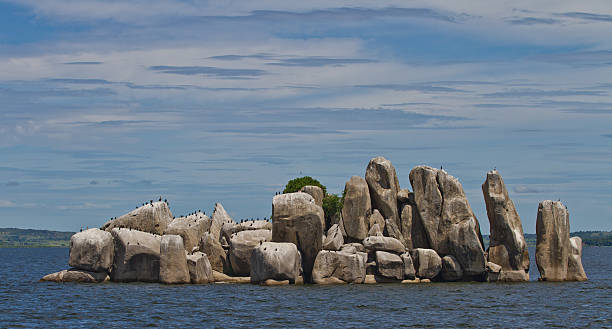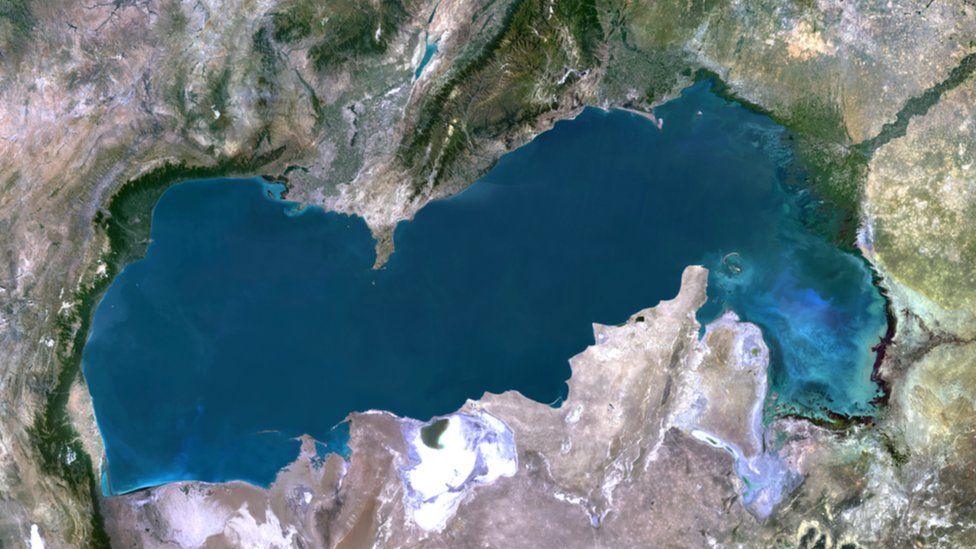Top Lists
Top 10 Largest Lakes in the World
The largest lakes in the world are found in Africa, Europe, and Asia. This article highlights details about the top 10 largest lakes.
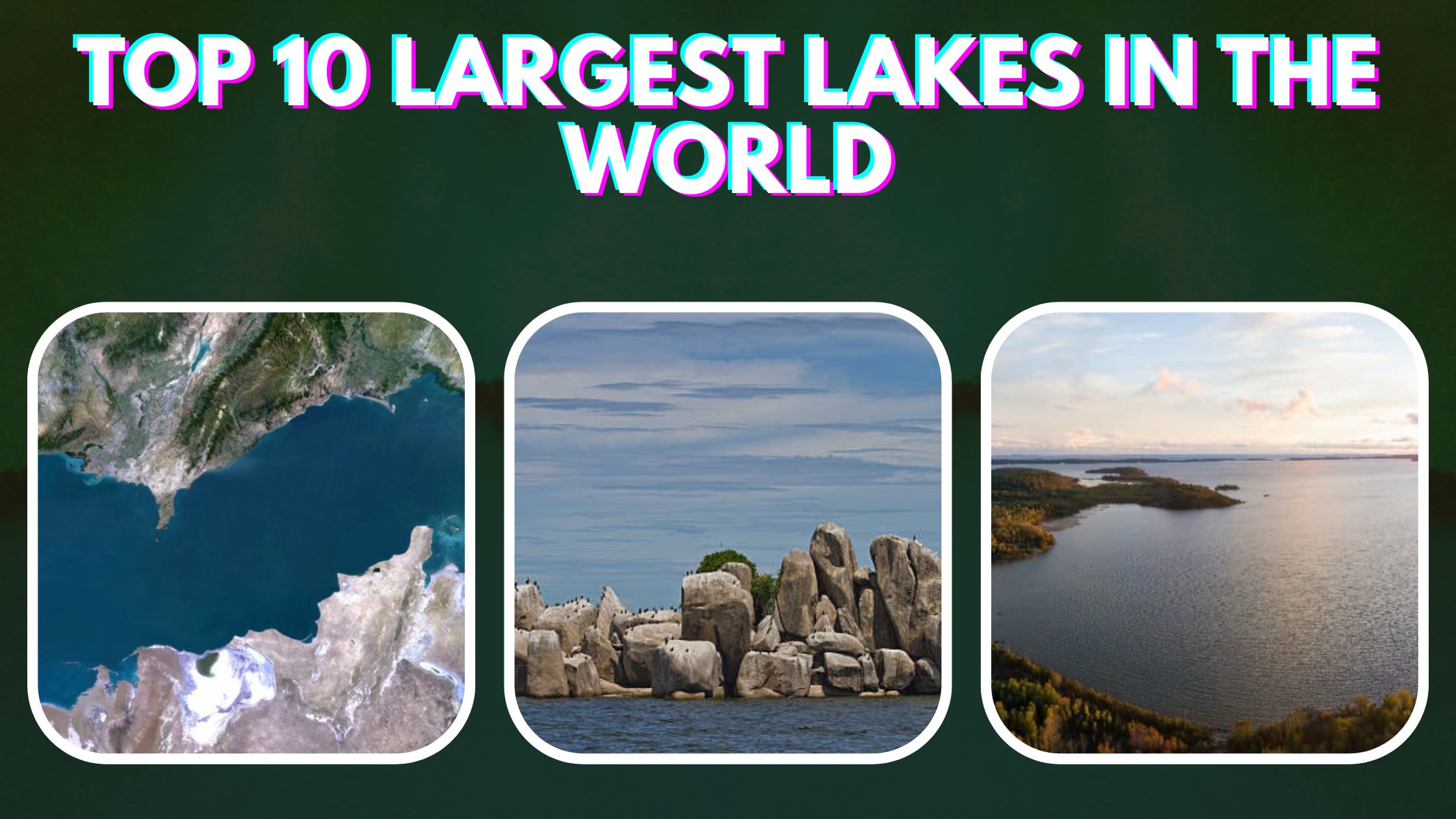
There are 117 million lakes in the world with Canada having the most of them (879,800). These lakes are of different types including freshwater lakes and saltwater lakes. The majority of the largest lakes in the world are from the U.S, Canada, and some other African countries like Malawi and Tanzania.
Lakes are not as large as seas where volume matters. However, some lakes like the Caspian Sea are mistaken to be seas as a result of their surface area.
Before we highlight the top 10 largest lakes in the world, here’s a brief on what a Lake really is (it may not be what you think it is).
What Makes a Lake?
According to Wikipedia, a lake is an area filled with water, localized in a basin, surrounded by land, and distinct from any river or other outlet that serves to feed or drain the lake. They typically lie on land and they’re not part of the ocean, even though they form part of the Earth’s water cycle.
A lake is so-called because of its large surface area, even though there are many other criteria for determining whether or not a body of water is a lake. A typical lake is bigger than 1 acre (4,000 m²).
Enough said! Here are the top 10 largest lakes in the world.
10. Great Slave Lake
Area: 27,200 km²
Length: 480 km
Surface elevation: 156 m
Width: 109 km
The Great Slave Lake is the deepest lake in North America with a depth of over 600 meters. Located in Canada, the lake was named by French explorers as a result of the Cree people of North America who enslaved other tribes in the country.
The Great Slave Lake has various towns on its edge like Fort Resolution, Hay River, Hay River Reserve, Behchokǫ̀, Yellowknife, Ndilǫ, and Dettah. Stretching over 300 miles long and 100 miles wide, the Great Slave Lake is the 10th largest lake in the world.
9. Lake Malawi
Area: 29,600 km²
Length: 580 km
Width: 75 km
Volume: 8,400 km³
Location(s): Malawi, Mozambique, Tanzania
Lake Malawi is the 9th largest lake in the world. It is also called Lake Nyasa. The African lake spreads across three East African countries- Tanzania, Malawi, and Mozambique. It is equally Africa’s third-largest lake.
It is the 4th largest lake on earth by volume and the second deepest lake in Africa. Lake Malawi is home to more species of fish than any other lake. It has hundreds of cichlid fish. The lake attracts many tourists and foreign visitors.
8. Great Bear Lake
Area: 31,153 km²
Catchment area: 114,717 km²
Volume: 2,236 km³
Surface elevation: 156 m
Location: Canada
The Great Bear Lake is very far north in Canada and it is entirely in the country. It is the largest lake in Canada and the fourth-largest in North America.
Located in the Northwest Territories of Canada on the Arctic Circle, the Great Bear Lake is the eighth largest lake in the world. Being over 440 meters deep, the lake is fringed by boreal forest and tundra and is known for its crystal-clear water. The Great Bear Lake has the fewest variety of fish species among all the Great Lakes in Canada.
7. Lake Baikal
Area: 31,722 km²
Length: 636 km
Catchment area: 560,000 km²
Volume: 23,620 km³
Surface elevation: 456 m
Location- Russia
Lake Baikal is the 7th largest lake in the world, however, it is also the world’s deepest lake (it is 1,632 meters deep). It is found exclusively in Russia and has the world’s largest volume of freshwater in a lake.
The Russian Lake is home to about 1,700 species of plants and animals and it accommodates a total of 27 islands, most of which are uninhabited. There are over 100 rivers and streams flowing into Lake Baikal and one (The Angara River) flowing out of it towards the Arctic Ocean.
Lake Baikal is known to be one of the cleanest lakes on earth.
6. Lake Tanganyika
Area: 32,900 km²
Length: 673 km
Location: Zambia, Tanzania, DR Congo, Burundi
Lake Tanganyika is the largest freshwater lake by volume. It has its shorelines in Zambia, the Democratic Republic of Congo, Tanzania, and Burundi. Lake Tanganyika is equally the longest freshwater lake in the world.
The lake is dangerous for swimming as some of the Nile River crocodiles are known to lurk beneath it. Lake Tanganyika is one of the African Great Lakes and it means “the great lake spreading out like a plain”.
5. Lake Michigan
Area: 58,030 km²
Width: 190 km
Length: 494 km
Volume: 4,918 km³
Lake Michigan is the 5th largest lake in the world. It is equally one of North America’s five Great Lakes. By volume, it is the second-largest lake but the third by surface area among the Great Lakes.
It extends to a maximum depth of 280 meters and spreads across Michigan, Indiana, Illinois, and Wisconsin from east to west in the U.S. Lake Michigan is the only one of the 5 Great Lakes to be found wholly in the United States. The lake is known to be very risky for swimming due to its shoreline being prone to dangerous rip currents, and its bottom being uneven with holes and deep drop-offs.
4. Lake Huron
Area: 59,600 km²
Length: 332 km
Location- U.S/Canada
Lake Huron is the 4th largest lake in the world and one of the great lakes in America. It has a lesser surface area when compared to Lake Victoria, however, it has more volume.
Stretching over 3,800 miles, the coastline is the longest of all the Great Lakes, encompassing over 30,000 islands. The lake is, however, infamous for many shipwrecks. Another interesting thing is that it accommodates Manitoulin Island, the biggest lake island in the world.
3. Lake Victoria
Area: 68,800 km²
Shore length: 8,792 km
Location: United States, Canada
Lake Victoria is one of the Great Lakes of Africa. Africa has many lakes and bodies of water but Lake Victoria stands out. Bordering Tanzania, Uganda, and Kenya, the lake is the largest freshwater lake on the African continent by surface area.
Lake Victoria is home to over 200 species of fish including Tilapia. It records the most deaths year-in-year-out as a result of black spots, crocodile attacks, and changeable weather conditions. Owing to its short depth, Lake Victoria’s volume is substantially less than most lakes around the world.
2. Lake Superior
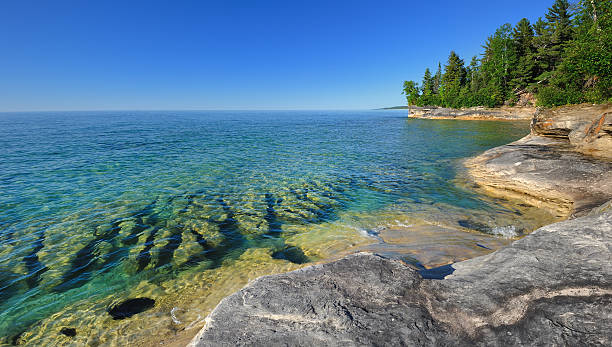
Pristine clear waters of Lake Superior Pictured Rocks National Lakeshore, near Munising, Michigan USA
Area: 82,103 km²
Volume: 12,100 km³
Length: 563 km
Surface elevation: 183 m
Lake Superior is the largest lake in the U.S by volume. It is equally the largest freshwater lake in the world by surface area and the largest, deepest, and coldest of North America’s Great Lakes. It borders the US states of Minnesota, Wisconsin, and Michigan.
Lake Superior means ‘Big Sea Water’ and is a prominent hotspot on the Great Lakes Waterway. It has been used for shipping goods for over a century now. It is bordered along the shores of the U.S and Canada. Lake Superior is however one of the most dangerous lakes to swim on earth.
1. The Caspian Sea
Area: 371,000 km²
Length: 1,030 km
Surface elevation: -28 m
The Caspian sea is the largest lake in the world. Although it is called a sea, it is typically a lake for many reasons, one of them being that it is entirely landlocked. The Caspian sea is located between Europe and the Asian continents. The inland sea is bordered by Russia, Kazakhstan, Azerbaijan, and Turkmenistan.
The lake is brackish (somewhat salty), although not as salty as seawater. It once formed part of the ancient Paratethys Sea. The Caspian sea has a surface area of 371,000 km².
Top 10 Largest Lakes in the World
Here’s a table containing the top 10 largest lakes in the world as highlighted in this article.
| RANK | LAKE | SIZE |
|---|---|---|
| 1 | The Caspian Sea | 371,000 km² |
| 2 | Lake Superior | 82,103 km² |
| 3 | Lake Victoria | 68,800 km² |
| 4 | Lake Huron | 59,600 km² |
| 5 | Lake Michigan | 58,030 km² |
| 6 | Lake Tanganyika | 32,900 km² |
| 7 | Lake Baikal | 31,722 km² |
| 8 | Great Bear Lake | 31,153 km² |
| 9 | Lake Malawi | 29,600 km² |
| 10 | Great Slave Lake | 27,200 km² |

